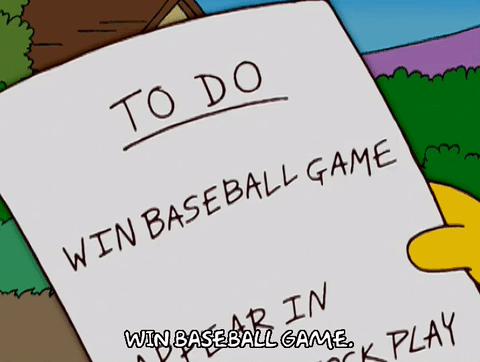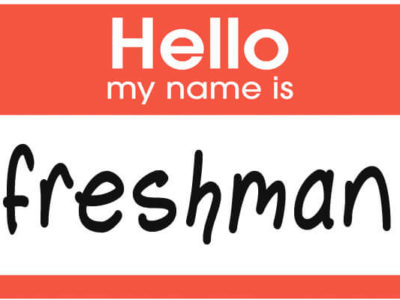Congratulations, freshmen. You braved the dramatic years of high school, now reaching the grand achievement of college. Unfortunately, like Spiderman says, “With great power comes great responsibility”—and pressure. Funny how that happens, right? As a recent college graduate, I can show you how to make your transition from high school to college much easier. As a freshman, I learned these things the hard way because I didn’t have a wise friend there to give me pointers. Best of luck, freshie.
1. MASTER THE ART OF SKIMMING

If your a major—like mine— places a heavy emphasis on reading, you’re going to need to cut some corners while still knowing enough about each book to pass class. Ideally, you want to read each book through from cover to cover, but that can’t happen with a full course load. That’s why you need to master the art of skimming. An experienced skimmer will glance their eyes over the entirety of each page while also reading the first sentence of each paragraph. The topic sentences—providing that they’re well-written—should give you a sense of what each paragraph will talk about. Later on, you can go back and read them while studying for an exam or writing a paper. Plus, you should definitely read the introduction because it gives you a good sense of what the entire piece will cover.It explains the goals/objectives in writing, the central argument of the text, etc. Don’t think of this as cutting corners. Think of it as a way to actually get in a good night’s sleep.
2. HIGHLIGHT YOUR SYLLABUS

When you first get your syllabus from your professor, highlight any pertinent details like due dates and the grade scale. This way you can quickly and easily reference it when preparing to write a paper or studying for an exam. Want to know how much that dreaded final paper is worth? Check the syllabus. Want some tips on how to write that final paper? Check the syllabus. Professors don’t just create syllabi to make themselves feel good. They create them for YOU. They want YOU, the student, to excel and glean the uttermost from the course. So instead of allowing your syllabi to collect dust, reference them for any course-related questions.
3. GO BY WHAT’S DUE

College is a juggling act. You take four to five courses each semester and professors expect you to juggle homework from each class each week. With that said, I learned early on in my college career that you can’t follow syllabi to the “T.” Instead, you need to prioritize according to what is due. The five-page paper will take priority over any reading assigned in other courses, and you’ll need to finish the paper due Wednesday before you consider tackling the essay due Friday. Don’t worry; you’ll go back to the reading that you missed when the exam comes around. This time you’ll most likely have a study guide to guide you through. See what I did there?
4. TO SKIP OR NOT SKIP LECTURE

This is a toughie. It depends on the class, really. If no one takes attendance and the professor posts the slides online…why not? After all, you could use that class time to bang out another page for that research paper or run through your Quizlet a few times before your Oceanography exam. Contrary to what professors tell you, you can get an A and not attend class.
5. QUIZLET

Speaking of Quizlet, you’ll want to use this website as a study tool. Quizlet is completely free and you can even sign up with your Facebook account. It allows you to create and study flashcards virtually anywhere—even on your phone or iPad. It sure beats carrying around a bunch of handwritten cards in your backpack. Technology has become an integral part of everyday life. Why not use it to aid your studies?
6. DO YOUR HOMEWORK

Yes, I know what you’re thinking, “God you really don’t need to tell me that.” Wait a minute. Just please wait one minute and listen. Actually finishing your homework sounds great, but few students actually take the time to research professors before signing up for the class. If your interests don’t match your professors interests, then you can bet that you won’t enjoy the class. Even if the class seems like the most benign course on the list, the professor teaching it still has very real opinions that will influence the course content. So take a step back and skim through some of their publications to get a holistic sense of who they are as people. You won’t regret it.
7. JOIN A STUDY GROUP

Sometimes students form small study groups using social media for the classes with hundreds of students pouring ine very day. The class site usually advertises these groups, but for whatever reason people don’t end up joinging them. Choosing not to sign up does a disservice to you as a student and as a future employee. Post-graduation, you will need to work together and collaborate toward a common goal in the real world—even if you don’t do that already. Who knows, you might meet a classmate that explains the material better than your professor. So shake off any of those pre-conceived notions and start collaborating.



















